Recent Blog Posts
What If Your Driver’s License Reinstatement Is Denied?
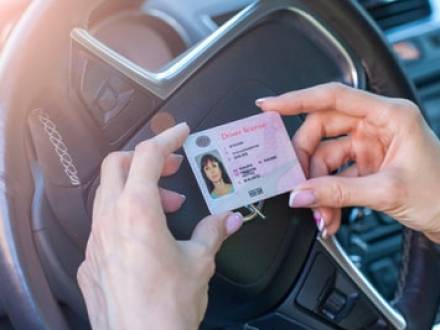 A DUI conviction or too many points on your driving record can cause you to lose your license. Since most of us rely on our vehicles to commute to and from work, take the kids to school, run errands, and participate in recreational activities, being without a vehicle can be a challenging situation. If you have been dealing with a suspended license for the past year, two years, or even longer, it can be exciting when the time approaches for license reinstatement.
A DUI conviction or too many points on your driving record can cause you to lose your license. Since most of us rely on our vehicles to commute to and from work, take the kids to school, run errands, and participate in recreational activities, being without a vehicle can be a challenging situation. If you have been dealing with a suspended license for the past year, two years, or even longer, it can be exciting when the time approaches for license reinstatement.
Typically, the process goes smoothly, but occasionally, challenges arise. There are many issues that can stall out a driver’s license reinstatement. It can be helpful to go over the list of the most common reasons for license reinstatement denial so you can address any potential problems and increase your likelihood of a successful outcome. It can also be helpful to speak to an experienced Kane County, IL license reinstatement attorney.
What Tactics Does Law Enforcement Not Want You to Know?
 One in three American adults – approximately 78 million people – have a criminal record. Of course, not all of these individuals ended up behind bars. Some were arrested or charged but never convicted, while many others were convicted of minor, non-violent crimes. Unfortunately, even the mildest criminal record can follow you for your entire life. It is no secret that encounters with law enforcement can be intimidating, even frightening, for most people.
One in three American adults – approximately 78 million people – have a criminal record. Of course, not all of these individuals ended up behind bars. Some were arrested or charged but never convicted, while many others were convicted of minor, non-violent crimes. Unfortunately, even the mildest criminal record can follow you for your entire life. It is no secret that encounters with law enforcement can be intimidating, even frightening, for most people.
The police are allowed to use tactics that many people are unaware of to elicit a confession or an arrest. While most of us know that we should take our right to remain silent seriously, that can go out the window quickly when there are two trained police officers interrogating you for hours and hours. If you have been charged with a criminal offense, the single best thing you can do to protect your rights and your future is to contact an Aurora, IL criminal defense attorney.
Is Intoxication a Valid Defense to an Illinois Crime?
 Whether intoxication is a valid defense to a criminal offense will usually hinge on whether the intoxication is voluntary or involuntary - and what state the crime occurs in. Voluntary intoxication occurs when a person willfully and knowingly drinks alcohol with the clear knowledge that it could result in drunkenness.
Whether intoxication is a valid defense to a criminal offense will usually hinge on whether the intoxication is voluntary or involuntary - and what state the crime occurs in. Voluntary intoxication occurs when a person willfully and knowingly drinks alcohol with the clear knowledge that it could result in drunkenness.
Involuntary intoxication could occur when a person drinks punch at a party after being told the punch has no alcohol in it. If you are facing criminal charges, it is important to speak to an experienced Aurora, IL criminal defense attorney who can assess the facts and evidence in your case and build a comprehensive defense.
What is a Specific Intent Crime, and How Does Involuntary Intoxication Relate?
A specific intent crime is one that the defendant intentionally committed with the intent to cause a particular result. (Knowing the probable outcome is not the same as specifically intending to cause the result). If the language in a state criminal statute uses words like "voluntarily," "willfully," or "knowingly," it is likely a general intent crime. If the statute requires specific intent for a crime, then involuntary intoxication could be a defense.
Are Women at a Greater Disadvantage When Charged with DUI?
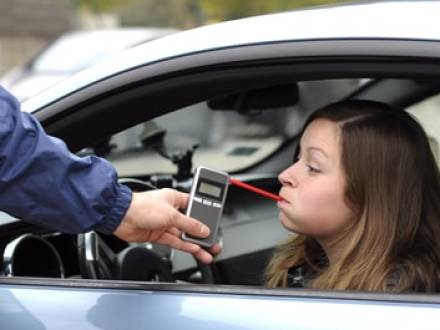 Most statistics show that about 80 percent of all DUI arrests are men and that men are involved in 79.5 percent of drunk driving fatalities. A few decades ago, the number of women arrested for DUI was even lower, having risen over the past 10-15 years. Unfortunately, virtually every aspect of a DUI, including field sobriety tests and breathalyzer tests, is geared toward males, meaning that a woman charged with DUI may be at an immediate disadvantage.
Most statistics show that about 80 percent of all DUI arrests are men and that men are involved in 79.5 percent of drunk driving fatalities. A few decades ago, the number of women arrested for DUI was even lower, having risen over the past 10-15 years. Unfortunately, virtually every aspect of a DUI, including field sobriety tests and breathalyzer tests, is geared toward males, meaning that a woman charged with DUI may be at an immediate disadvantage.
Breathalyzers treat each subject the same regardless of the known differences in how women metabolize alcohol as compared to men. There are other issues that place women at a disadvantage during a DUI stop as well. If you are a female facing DUI charges, it is important to speak to an experienced Aurora, IL criminal defense attorney as quickly as possible to ensure you receive the best defense available.
Could I Go to Jail for Speeding in Illinois?
 Perhaps you recently bought a new sports car and are checking it out on the open highway when you see flashing red lights behind you. While you may expect to receive a speeding ticket, what you may not expect is to be handcuffed and taken to jail. In the state of Illinois, driving 26 mph or more above the posted speed limit is much more serious than a simple traffic ticket – it is a criminal offense known as aggravated speeding.
Perhaps you recently bought a new sports car and are checking it out on the open highway when you see flashing red lights behind you. While you may expect to receive a speeding ticket, what you may not expect is to be handcuffed and taken to jail. In the state of Illinois, driving 26 mph or more above the posted speed limit is much more serious than a simple traffic ticket – it is a criminal offense known as aggravated speeding.
Of course, whether you go to jail or not will depend on the law enforcement agency and the discretion of the officer. You could be arrested and taken to the police station for processing, or you could receive a ticket with a date for a required court appearance. Either way, this is a serious traffic offense that can benefit from having an Aurora, IL traffic violations lawyer to help you navigate the process with the best outcome possible.
Is There Help Available For Those Who Cannot Afford a BAIID?
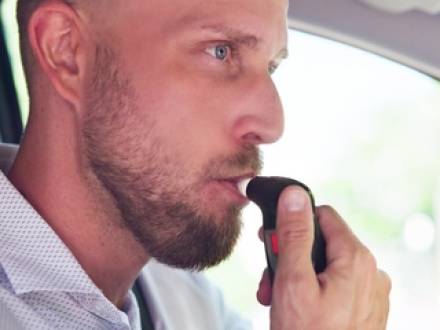 Driving under the influence continues to be a persistent yet preventable problem across the United States and in Illinois, yet in the state, the number of DUI arrests has not increased over the past decade. Even so, alcohol impairment remains a factor in at least one-third of all motor vehicle fatalities in the nation. While 0.08 percent is the blood alcohol concentration that is considered impaired in the state, a person with a BAC between 0.05 and 0.08 can be convicted of DUI if additional evidence exists that will show the driver’s impairment.
Driving under the influence continues to be a persistent yet preventable problem across the United States and in Illinois, yet in the state, the number of DUI arrests has not increased over the past decade. Even so, alcohol impairment remains a factor in at least one-third of all motor vehicle fatalities in the nation. While 0.08 percent is the blood alcohol concentration that is considered impaired in the state, a person with a BAC between 0.05 and 0.08 can be convicted of DUI if additional evidence exists that will show the driver’s impairment.
Depending on whether the DUI conviction is for a first, second, third, or subsequent DUI, the person convicted may be forced to have a Breath Alcohol Ignition Interlock Device (BAIID) installed in his or her vehicle for a specific length of time. The device can be financially prohibitive for some, but there may be help available. If you are facing DUI charges or dealing with the aftermath of a DUI, it can be beneficial to speak to an Aurora, IL DUI attorney.
What Are Signs the Prosecutor’s Case Could Be Weak?
 A 2020 study published state-by-state results regarding the number of charges that resulted in a conviction. In the state of Illinois, there were 8,286 charges, 25.34 percent of which were felony charges. The IL conviction rate for felony and misdemeanor criminal charges combined was less than half of the number charged (40.08 percent).
A 2020 study published state-by-state results regarding the number of charges that resulted in a conviction. In the state of Illinois, there were 8,286 charges, 25.34 percent of which were felony charges. The IL conviction rate for felony and misdemeanor criminal charges combined was less than half of the number charged (40.08 percent).
You may understandably be anxious and stressed about the outcome if you have been charged with a criminal offense in Illinois. It is important to remember that being charged with a crime does not necessarily mean the prosecutor has an airtight case against you. Criminal charges can benefit significantly from a skilled Aurora, IL criminal defense attorney from Law Office of Patricia Magaña, LLC.
Signs a Criminal Case Could Be Shaky
An experienced criminal defense lawyer can quickly identify a weak criminal case – and will know how to challenge those weaknesses with the prosecutor. The prosecutor must share all information about the case during the pre-trial discovery phase. A weak case can result in the criminal charges being dismissed, reduced, or settled on more favorable terms. Some of the most common issues that indicate a weak case on the part of the prosecutor include:
How a CDL Moving Violation Can Adversely Affect Your Future
 For those with a commercial driver’s license (CDL), keeping that license is more than a requirement – the individual’s career and livelihood depend on maintaining the license. Any CDL moving violation that impacts the license can result in the loss of a job, a career, and one’s ability to make a living. If you are a CDL driver who is facing the potential loss of your license, it is important that you speak to a knowledgeable Aurora, IL CDL violation lawyer.
For those with a commercial driver’s license (CDL), keeping that license is more than a requirement – the individual’s career and livelihood depend on maintaining the license. Any CDL moving violation that impacts the license can result in the loss of a job, a career, and one’s ability to make a living. If you are a CDL driver who is facing the potential loss of your license, it is important that you speak to a knowledgeable Aurora, IL CDL violation lawyer.
How is a CDL License Obtained in Illinois?
Obtaining a CDL license in the state is not an easy task and has many different requirements. You must be 18 to apply for a CDL to operate within the state and 21 to operate across state lines or to transport passengers. You must have a valid driver’s license as your "base." Proof of Legal Presence documentation and an acceptable medical certificate are required.
What is the Process for License Reinstatement After an IL DUI?
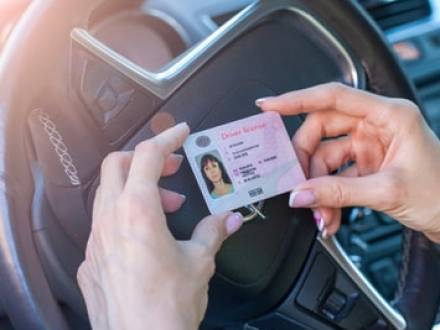 Between 1991 and 2017, the rate of drunk driving fatalities decreased by nearly 50 percent. Nonetheless, in 2023, roughly one million drivers were arrested and charged with DUI or DWI. While about 30.8 percent of people believe a driver should lose his or her license following a DUI conviction, most believe this loss should only be temporary.
Between 1991 and 2017, the rate of drunk driving fatalities decreased by nearly 50 percent. Nonetheless, in 2023, roughly one million drivers were arrested and charged with DUI or DWI. While about 30.8 percent of people believe a driver should lose his or her license following a DUI conviction, most believe this loss should only be temporary.
The primary question asked by Illinois residents who have been convicted of DUI is when they can have their driver’s license reinstated. We live in a very mobile society which is highly dependent on the ability to drive. The lack of a driver's license severely hinders getting to and from work, taking children to school, running errands, and engaging in recreational activities.
Thanks to changes in Illinois DUI laws over the past few years, the question of when a driver’s license can be reinstated has become increasingly complex. If you have questions about when your license can be reinstated and how the process works, an Aurora, IL DUI attorney from Law Office of Patricia Magaña, LLC can help.
Can I Be Liable if a Minor Drinks Alcohol at My House?
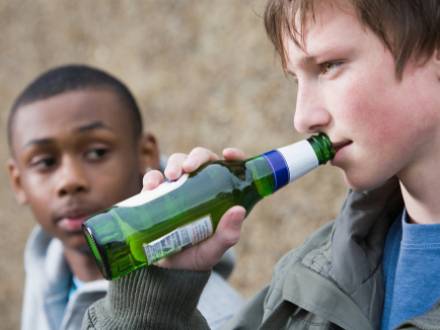 Underage drinking is a serious crime in Illinois that can have severe consequences for both minors and adults. An adult is generally forbidden to give alcohol to a minor and can face prison and fines for doing so. Furthermore, Illinois’ Social Host Law does not require that alcohol be given to the minor directly. Underage drinking on your property can also be considered a criminal offense, and parents can in some cases be held responsible for their own child drinking under 21. If you are being accused of enabling underage drinking, contact an Illinois criminal defense attorney right away to understand your legal options.
Underage drinking is a serious crime in Illinois that can have severe consequences for both minors and adults. An adult is generally forbidden to give alcohol to a minor and can face prison and fines for doing so. Furthermore, Illinois’ Social Host Law does not require that alcohol be given to the minor directly. Underage drinking on your property can also be considered a criminal offense, and parents can in some cases be held responsible for their own child drinking under 21. If you are being accused of enabling underage drinking, contact an Illinois criminal defense attorney right away to understand your legal options.
What Is the Social Host Law in Illinois?
Illinois has a Social Host Law that punishes adults who knowingly permit or authorize underage drinking in their homes. Importantly, the law does not require adults to provide the alcohol or give express permission to drink it. Even passively allowing it to happen can be considered a Class A misdemeanor, which is punishable by up to a year in jail and a fine of up to $500. If underage drinking results in serious bodily harm or death — such as if the minor drove drunk and killed someone — the adult can be charged with a Class 4 felony, which carries a prison sentence of one to three years and fines up to $25,000.

 630-448-2001
630-448-2001






